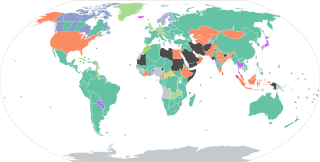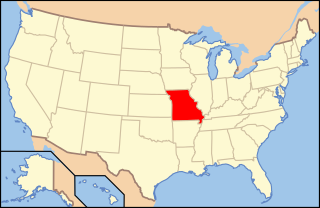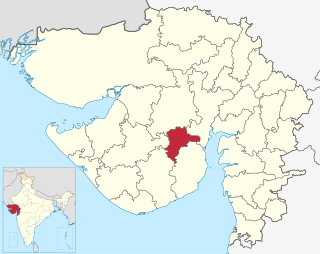Related Research Articles

Prohibition is the act or practice of forbidding something by law; more particularly the term refers to the banning of the manufacture, storage, transportation, sale, possession, and consumption of alcoholic beverages. The word is also used to refer to a period of time during which such bans are enforced.

The Liquor Control Board of Ontario (LCBO) is a Crown corporation that retails and distributes alcoholic beverages throughout the Canadian province of Ontario. It is accountable to the Legislative Assembly through the minister of finance. It was established in 1927 by the government of Premier George Howard Ferguson to sell liquor, wine, and beer. Such sales were banned outright in 1916 as part of prohibition in Canada. The creation of the LCBO marked an easing of the province's temperance regime. By September 2017, the LCBO was operating 651 liquor stores.

The legal drinking age is the minimum age at which a person can legally consume alcoholic beverages. The minimum age alcohol can be legally consumed can be different from the age when it can be purchased in some countries. These laws vary between countries and many laws have exemptions or special circumstances. Most laws apply only to drinking alcohol in public places with alcohol consumption in the home being mostly unregulated. Some countries also have different age limits for different types of alcohol drinks.

Oklahoma allows any establishment with a beer and wine license to sell beer and wine up to 15% ABV, under refrigeration.

The alcohol laws of Missouri are among the most permissive in the United States. Missouri is known throughout the Midwest for its largely laissez-faire approach to alcohol regulation, in sharp contrast to the very strict alcohol laws of some of its neighbors, like Kansas and Oklahoma.

The alcohol laws of Kansas are among the strictest in the United States, in sharp contrast to its neighboring state of Missouri, and similar to its other neighboring state of Oklahoma. Legislation is enforced by the Kansas Division of Alcoholic Beverage Control.

The alcohol laws of Pennsylvania contain many peculiarities not found in other states, and are considered some of the strictest regulations in the United States.

The state laws governing alcoholic drinks in New Jersey are among the most complex in the United States, with many peculiarities not found in other states' laws. They provide for 29 distinct liquor licenses granted to manufacturers, wholesalers, retailers, and for the public warehousing and transport of alcoholic drinks. General authority for the statutory and regulatory control of alcoholic drinks rests with the state government, particularly the Division of Alcoholic Beverage Control overseen by the state's Attorney General.
Alcohol laws of Australia are laws that regulate the sale and consumption of alcoholic beverages. The legal drinking age is 18 throughout Australia. The minimum age for the purchase of alcoholic products in Australia is 18. A licence is required to produce or sell alcohol.
The Gujarat alcohol poisonings occurred in July 2009 in Gujarat, resulting in the death of 136 people from consumption of bootleg liquor.

Alcohol laws are laws relating to manufacture, use, being under the influence of and sale of alcohol or alcoholic beverages. Common alcoholic beverages include beer, wine, (hard) cider, and distilled spirits. Definition of alcoholic beverage varies internationally, e.g., the United States defines an alcoholic beverage as "any beverage in liquid form which contains not less than one-half of one percent of alcohol by volume". Alcohol laws can restrict those who can produce alcohol, those who can buy it, when one can buy it, labelling and advertising, the types of alcoholic beverage that can be sold, where one can consume it, what activities are prohibited while intoxicated, and where one can buy it. In some cases, laws have even prohibited the use and sale of alcohol entirely.

Alcohol is prohibited in the states of Bihar, Gujarat, Mizoram, and Nagaland. All other Indian states and union territories permit the sale of alcohol.
The alcohol laws of Wisconsin consist of both statewide statutes and local ordinances governing the sale of alcohol.
The legal drinking age in India and the laws which regulate the sale and consumption of alcohol vary significantly from state to state. In India, consumption of alcohol is prohibited in the states of Bihar, Gujarat, Nagaland, and Mizoram, as well as the union territory of Lakshadweep. There is partial ban on alcohol in some districts of Manipur. All other Indian states permit alcohol consumption but fix a legal drinking age, which ranges at different ages per region. In some states the legal drinking age can be different for different types of alcoholic beverage.

Cannabis in India has been known to be used at least as early as 2000 BCE. In Indian society, common terms for cannabis preparations include charas (resin), ganja (flower), and bhang, with Indian drinks such as bhang lassi and bhang thandai made from bhang being one of the most common legal uses.
Alcohol prohibition in Tamil Nadu is governed by the State Prohibition and Excise department as per the Tamil Nadu Prohibition Act, 1937. TASMAC, a state government-owned company, controls the wholesale and retail vending of alcoholic beverages in the State. On 24 May 2016, after her swearing-in, J. Jayalalitha announced the closing of 500 liquor shops and the reduction of the business hours of State-run liquor shops across the State. On 20 February 2017, the first office order signed by the Chief Minister Edappadi K. Palaniswami was the closure of 500 liquor outlets owned by the public sector TASMAC. This is in addition to the 500 liquor outlets closed down by late Chief Minister J Jayalalithaa in May 2016.

The Bombay Prohibition Act, 2009 is an Act of Gujarat Legislative Assembly which prohibits manufacture, selling, buying or distributing of Laththa.

On 25 July 2022, at least 42 people died and more than 97 were hospitalized in a methanol poisoning incident in Gujarat, India. The victims had consumed undiluted methyl alcohol (methanol), assuming it to be alcohol. The spurious liquor was then sold to more than 100 people in the villages of Ahmedabad, Botad and Surendranagar.
References
- ↑ The Bombay (Reorganisation) Act, 1960
- ↑ "Facts know about Bombay Prohibition Act 1949 how to get liquor license permit in Mumbai City". Realityviews.in. 24 June 2012. Retrieved 29 October 2016.
- ↑ "Mumbai shocker: Woman arrested for possessing liquor for chocolates". Ndtv.com. 24 June 2012. Retrieved 29 October 2016.
- ↑ "Detained for not possessing liquor permits, woman let off - Indian Express". Archive.indianexpress.com. 23 June 2012. Retrieved 29 October 2016.
- ↑ "Worli resident talks about ordeal after raid". Epaper.timesofindia.com. 23 June 2012. Archived from the original on 29 October 2016. Retrieved 29 October 2016.